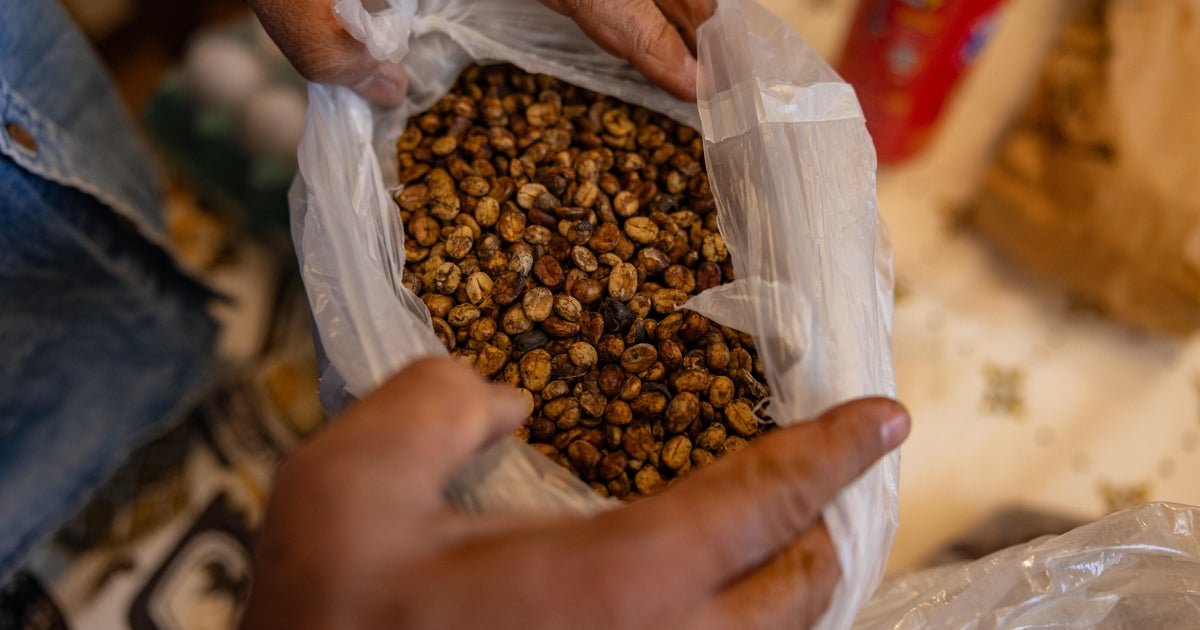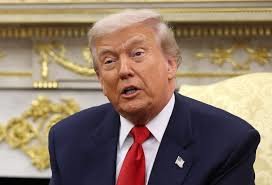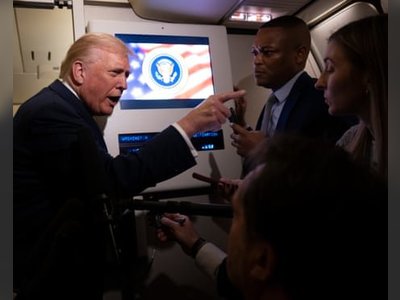Trump Ends 40% Tariffs on Brazilian Food Imports to Ease U.S. Prices
Executive order removes steep duties on Brazilian beef, coffee and other goods amid efforts to lower grocery costs
President Donald Trump on Thursday signed an executive order eliminating the 40 percent tariffs on Brazilian beef, coffee, bananas and several other agricultural imports, reversing levies his administration imposed in July.
The change applies to all qualifying shipments arriving in the United States on or after November 13, and businesses that paid the duties may now be eligible for refunds.
In the order, Trump cited advice from senior officials who said the high tariffs were no longer necessary, pointing to progress in ongoing trade negotiations with Brazil.
The move follows a series of recent tariff reductions aimed at lowering food prices for American households, which have faced persistent inflation in key grocery categories.
Federal data shows food prices climbed 3.1 percent in September compared to a year earlier, with roasted coffee rising nearly 19 percent over the same period.
The decision also comes on the heels of reciprocal trade agreements the White House reached last week with Argentina, Guatemala, El Salvador and Ecuador.
Those frameworks are designed to expand access for U.S. exporters while reducing costs on select imports that have contributed to elevated consumer prices.
By cutting duties on major Brazilian goods, the administration is positioning the policy shift as both a strategic and economic win—strengthening ties with Brazil while providing immediate relief to U.S. consumers.
The White House has framed the tariff rollbacks as part of a broader effort to stabilize prices across the food supply chain heading into the holiday season.
While additional negotiations with Brazil remain underway, the administration signaled that further tariff adjustments are possible depending on economic conditions and bilateral progress.
For now, the order marks one of the most significant trade relaxations of Trump’s second term, offering importers new flexibility and giving consumers a boost at a time of heightened cost pressures.
The change applies to all qualifying shipments arriving in the United States on or after November 13, and businesses that paid the duties may now be eligible for refunds.
In the order, Trump cited advice from senior officials who said the high tariffs were no longer necessary, pointing to progress in ongoing trade negotiations with Brazil.
The move follows a series of recent tariff reductions aimed at lowering food prices for American households, which have faced persistent inflation in key grocery categories.
Federal data shows food prices climbed 3.1 percent in September compared to a year earlier, with roasted coffee rising nearly 19 percent over the same period.
The decision also comes on the heels of reciprocal trade agreements the White House reached last week with Argentina, Guatemala, El Salvador and Ecuador.
Those frameworks are designed to expand access for U.S. exporters while reducing costs on select imports that have contributed to elevated consumer prices.
By cutting duties on major Brazilian goods, the administration is positioning the policy shift as both a strategic and economic win—strengthening ties with Brazil while providing immediate relief to U.S. consumers.
The White House has framed the tariff rollbacks as part of a broader effort to stabilize prices across the food supply chain heading into the holiday season.
While additional negotiations with Brazil remain underway, the administration signaled that further tariff adjustments are possible depending on economic conditions and bilateral progress.
For now, the order marks one of the most significant trade relaxations of Trump’s second term, offering importers new flexibility and giving consumers a boost at a time of heightened cost pressures.













